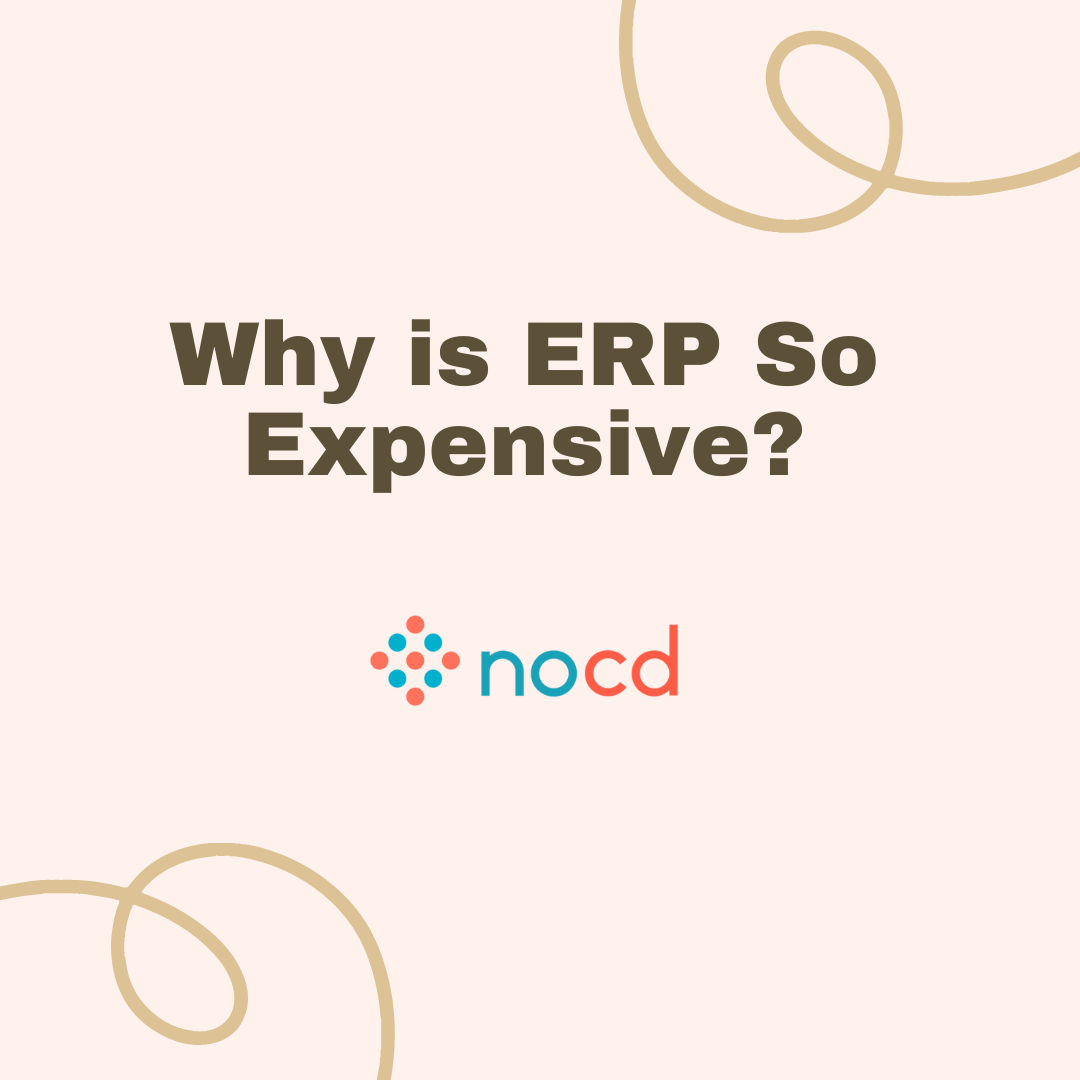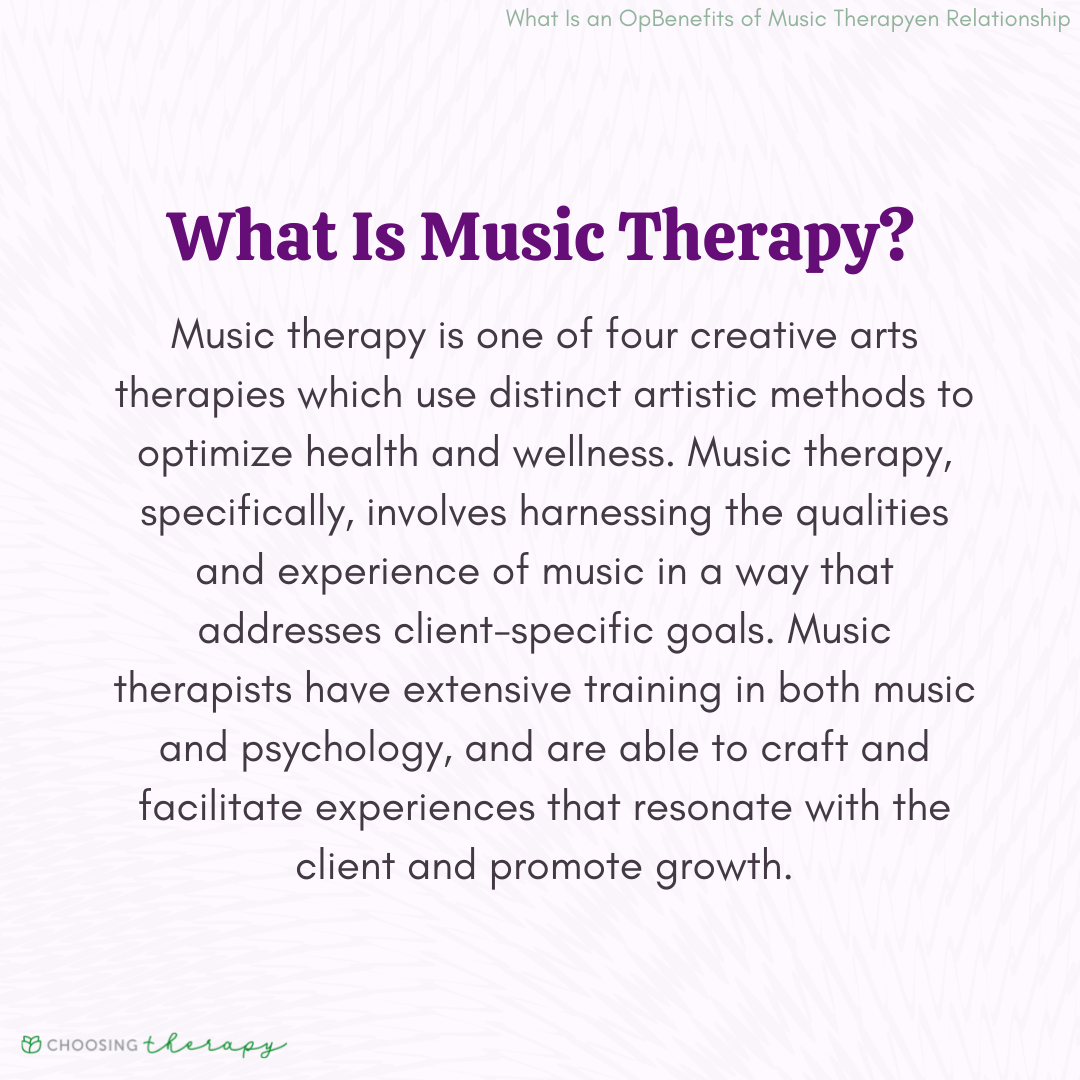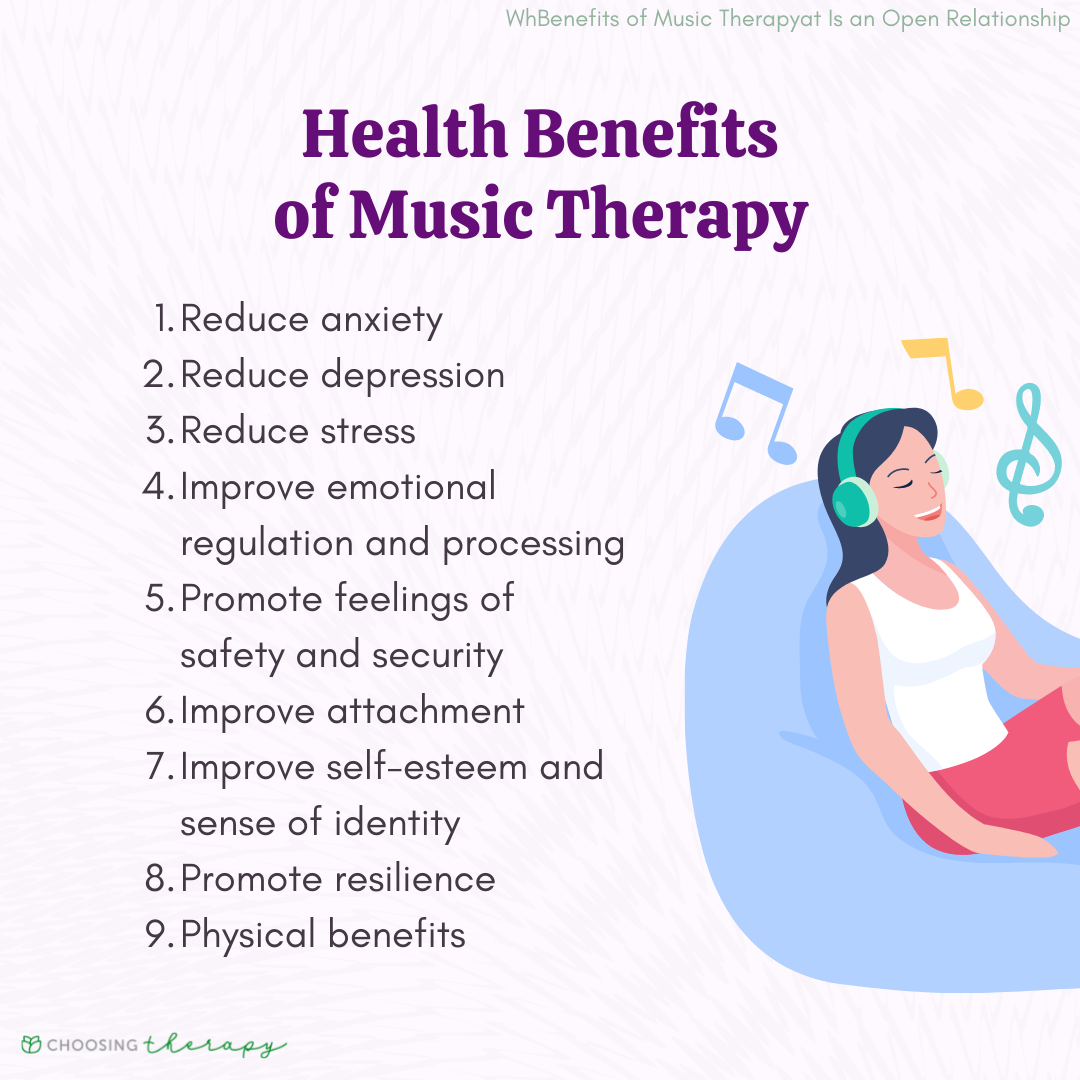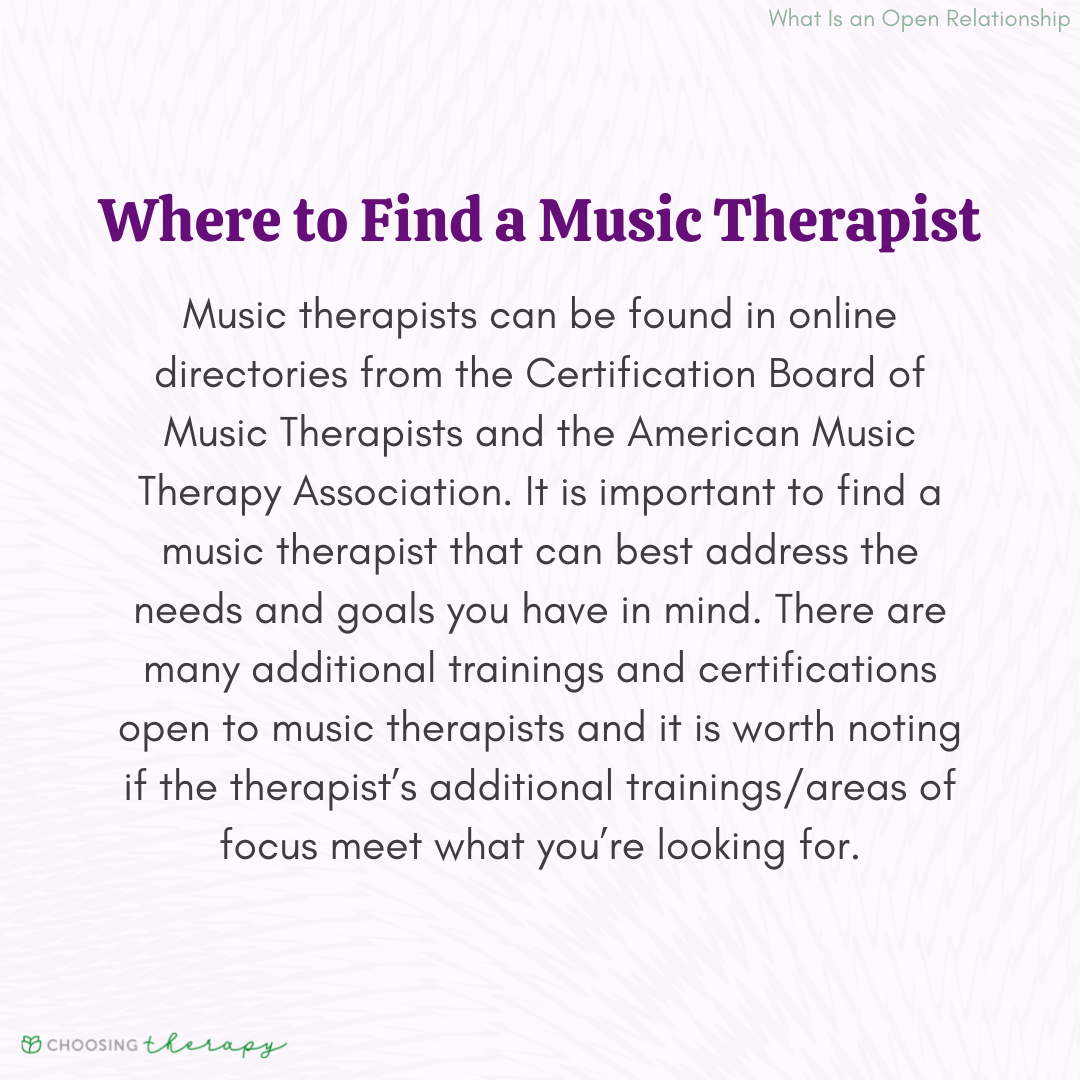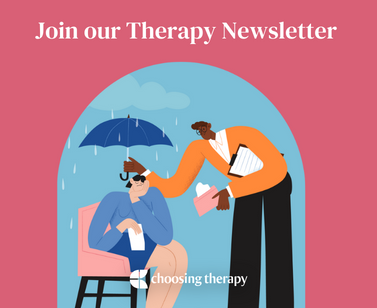Music therapy involves the use of collaborative music-based experiences with a credentialed music therapist to facilitate health and wellness. In a music therapy session, a client may engage in intentional music listening, playing an instrument, singing, or writing music. The benefits of music therapy can include an improved quality of life in mental, physical, spiritual, social, and emotional areas.
Virtual Music & Art Therapy For Teens & Young Adults Charlie Health’s virtual mental health program includes curated peer groups, individual therapy, and family therapy for teens and young adults with serious mental health issues. Insurance accepted. Learn More
What Is Music Therapy?
Music therapy is one of four expressive arts therapies that use arts-based methods to optimize health and wellness.1 Music therapy, specifically, involves harnessing the qualities and experience of music in a way that addresses client-specific goals. Music therapists have extensive training in both music and psychology and are able to craft and facilitate experiences that resonate with the client and promote growth.
The concept of using music as a healing modality has existed for centuries throughout various cultures. However, the music therapy field was not formalized until the 1940s.2 By the end of World War II, music therapy was gaining ground in the United States as a formal treatment for post-traumatic stress disorder in veterans returning home from the war. Universities began creating training programs in music therapy, and the first formal degree program was established in 1944.3
Music therapy is often categorized into four experiences:4
- Improvisation: The act of creating music in the moment that has not been created before. The music may be vocal, instrumental, or a combination of the two.
- Re-creation: The act of creating music that has already been written. Examples may include singing a favorite song or learning how to play a song on an instrument.
- Composition: The act of writing music. The most common form of composition is songwriting. Novice musicians can engage in songwriting using a technique where the music therapist assists the client in changing the words to a pre-written song.
- Receptive: The act of taking in music and responding in some way. The response may be musical or non-musical and can use a variety of creative modalities.
Music therapy aims to improve:
- Communication skills: Includes expressive language (producing communication in some form) and receptive language (taking in and understanding communication) skills. Through singing, individuals practice the physical mechanics of producing certain sounds and use call-and-response music experiences that mimic the back-and-forth style of communication.
- Social skills: The ability to interact with others in some way whether in a group, public, or private setting. Through interpersonal music therapy experiences, individuals engage in taking turns, playing, and developing relationships with others.
- Sensory skills: The ability to process sensory information that the brain receives. An individual can improve tactile, auditory, and visual skills through instrument play. Music therapy can also assist with sensory integration.
- Physical skills: Music therapy can assist with gross motor skills (large movements such as extending arms or legs) and fine motor skills (small movements such as using your individual fingers to type or pick up objects). Pairing an auditory stimulus with movement can give extra motivation and additional pathways for the brain to access movement.
- Cognitive skills: Includes skills such as learning, memory, executive functioning, and attention. Music can serve as an effective mnemonic tool because of its repetition and predictable structure.
- Emotional skills: Healthy emotionality requires the ability to identify, express, and regulate emotions. Music therapy provides musical experiences for self-expression, identifying emotion-based themes in songs, and using music to shift one’s mood.
9 Health Benefits of Music Therapy
Many individuals experience natural emotional reactions to music. A song can move us to dance or cry without much conscious thought. It can access our emotions and mental capacities in a way that words sometimes cannot. As Hans Christian Anderson once said, “When words fail, music speaks.” Music therapy uses these natural reactions to music and harnesses them into both short-term and long-term effects.
Here are nine mental & physical music therapy benefits:
1. Reduce Anxiety
Anxiety disorders affect approximately 40 million adults and 31.9% of adolescents every year.5 Many of these individuals experience symptoms such as racing and ruminating thoughts, extreme fear, frequent uncertainty, and worrying about the future. Music therapy for anxiety can assist in alleviating physical and mental symptoms of anxiety.
According to Dr. Andrew Knight, associate professor of music at CSU, “Stress and anxiety affect every human, and often in unique ways. Someone might hear song lyrics and feel a sense of validation that their experiences might be like the songwriter who is singing about a metaphor of anxiety. Others might use musicking – or the act of making music – as a way to be mindful and redirect their anxieties into the music they are making… One more idea is to use music as a kind of non-pharmacological anxiolytic – letting the music of your preference dissociate your mind from the current anxiety it is feeling and refreshing your head space before trying to address your anxiety in a healthy, mindful way.”16
Through a technique called the iso principle, music is matched to an individual’s present mood and then adapted to facilitate mood adjustment. If someone is feeling anxious, a music therapist may assist them in creating a playlist that gradually moves from fast, strong-beat music towards slower, simpler music. Musical affirmations–where a therapist helps a client identify an affirmation to calm their anxiety and puts it to a simple repeated melody–can help the client remember affirmations in the moment.6
2. Reduce Depression
Depression affects 264 million people worldwide.7 Common symptoms of depression include low energy, feelings of hopelessness/worthlessness, and loss of interest/pleasure in preferred activities. It can be easy for individuals experiencing depression to feel stuck in these states. Music therapy can be an effective treatment for depression because it gives one access to a variety of sounds and expressions.
Through improvisational instrument play, a client explores and receives instant auditory feedback of different moods and sounds. A client experiencing depression may initially play around with one tempo/volume. Over time, they can explore more dynamics, changing the tempo, volume, and even method of playing.8 As the client explores the range of musical expression, they may begin to access a wider range of emotional experiences, paving the way for improved mood and feelings of hope.
Virtual Music & Art Therapy For Teens & Young Adults Charlie Health’s virtual mental health program includes curated peer groups, individual therapy, and family therapy for teens and young adults with serious mental health issues. Insurance accepted. Learn More
3. Reduce Stress
Stress can increase heart rate, breathing rate, irritability, and restlessness. Through a process called entrainment, our bodies begin to match the stimuli we experience, especially music. For example, if you hear a steady rhythm, your heart rate or breathing will eventually begin to match that rhythm. This principle is used in a variety of music experiences to alleviate stress.
For instance, music therapists may pair accompanying music with a technique called Progressive Muscle Relaxation. In this technique, the therapist invites participants to tense and release specific muscle groups and provides musical accompaniment that evokes feelings of tension and release. Research has also shown that singing lowers levels of cortisol and cortisone, two hormones released when experiencing stress.9
4. Improve Emotional Regulation & Processing
Music is processed in the brain’s limbic system, which is the storehouse of other emotional processing and regulating systems. This is why certain music, even without any lyrics, can sound “sad,” “happy,” etc. Instrumental improvisation is often used to explore how different emotions might sound. For example, a client may play an emotion they are currently experiencing and an emotion they would like to experience and contrast the two sounds.
Another powerful music therapy technique to improve emotional processing and regulation is song discussion. The music therapist and client listen to a song and discuss the themes/emotions evoked by the lyrics, music, and the two elements together. Clients will often identify emotions in the song that are actually a reflection of their own inner experience. This then provides the opportunity to further process those emotions.10
5. Promote Feelings of Safety & Security
In order for any change to occur, one must feel safe enough to explore something new. Individuals who have experienced any sort of acute or chronic trauma experience may struggle with feeling safe. In a music therapy setting, the therapist is specially trained in making the environment accessible and promoting a therapeutic relationship based on safety and trust.
Music itself has unique elements that lend to safety and security. Music often exists within a structure–there is often a steady rhythm and a clear sense of a beginning/middle/end within a piece. This inherent structure acts as a container; one can project their emotions/experiences onto the music and feel that they are “held” by something predictable. Expressing an emotion nonverbally through music can often feel less threatening than expressing it through words.
6. Improve Attachment
Early relationships provide our foundation for development and learning how to relate to ourselves and the world. It is common for individuals with other mental health needs to have experienced some sort of disruption in their early caregiving relationships. By engaging in interpersonal music experiences, relationship dynamics can often be replicated and readdressed.
The therapist uses musical techniques, such as reflecting the client’s music back to them, to give the client a felt sense of being heard, listened to, and valued. Music therapists can also work with caregivers and children directly to promote co-regulation and bonding.11 The relational dynamics of intermusical connections can build up positive attributes in the client and assist in developing healthy relationship capacities.
7. Improve Self-Esteem & Sense of Identity
Dopamine, the “feel good” hormone in the brain, increases when we accomplish a task. In music therapy, therapists are trained to create experiences that give clients opportunities for success, while also maintaining autonomy and independence. Through opportunities to learn an instrument, play a song, or write a piece of music, individuals can experience increased self-confidence and self-esteem.
Music can also be a source of identity, especially for adolescents.12 Adolescents may form musical preferences based on their peers’ interests, or as an attempt to separate themselves from the crowd.13 In a music therapy session, individuals are provided a safe and supported space to explore different types of music and how music contributes to their sense of self.
8. Promote Resilience
Everyone experiences setbacks in life–our resilience determines how we move through those difficult moments and continue to live a life of meaningful experiences. Resilience is not a static personality trait, but something that can grow and develop throughout our lifetime. Using music as a form of self-care to regulate mood can be one tool in a person’s resilience toolbox. Music therapy experiences also lend themselves to finding a sense of meaning in music. This allows one to practice another resilience tool: finding value in your circumstances.
9. Physical Benefits
The most common use of music therapy to promote physical benefits is in the area of physical rehabilitation. Every movement we make has a rhythm to it. Thus, pairing rhythm with movement can be a highly effective form of teaching mobility in rehabilitative settings. Music also elicits unconscious physical responses. For instance, many of us tap our feet along to a song without even realizing it! Music affects the parts of our brain responsible for autonomic/unconscious functions (such as breathing, heart rate, some movements, etc.).14
Music therapy can help facilitate physiological changes such as:
- Improved respiration
- Lowered blood pressure
- Regulated heart rate
- Increased muscle Strength
- Increased range of motions
- Improved fine motor skills
What Can Music Therapy Be Used For?
Music therapy is applicable across the lifespan. It provides support during one’s pregnancy, birth, and postpartum; it also fosters the development of premature babies in NICUs. Furthermore, music therapy is used to help children reach developmental milestones and improve social and self-regulation skills, especially for children with Down syndrome or those on the autism spectrum.15 Music therapy can be used in the treatment of adults with Alzheimer’s disease, Parkinson’s disease, mental health conditions, and stroke survivors, as well.
Dr. Knight further explains, “Music therapists work to engage individuals with Alzheimer’s/Dementia primarily with the goal of enhancing their quality of life. While we know we can’t bring back any sense of permanence in their cognition and memory, sometimes music sparks a moment of lucidity, of happiness, when they recognize a song and they sing along with a music therapist.”16
A person who has any of the needs referenced throughout this article and shows an affinity for or interest in music can benefit from music therapy. It may be especially helpful for individuals who have been resistant to other forms of therapy, such as talk therapy.
Where to Find a Music Therapist
Music therapists can be found in online directories from the Certification Board of Music Therapists and the American Music Therapy Association. It is important to find a therapist that can best address the needs and goals you have in mind. There are many additional certifications open to music therapists and it is worth noting if the therapist’s additional training/areas of focus meet what you’re looking for.
A music therapist practicing in the United States must hold the MT-BC credential (Music Therapist – Board Certified). Certain states require additional licenses. This credential ensures that the person has completed rigorous education and training (an approved bachelor’s degree program comprised of extensive coursework and 1200 hours of clinical practice) to provide music therapy in a safe, effective, and ethical way.
Music therapists are often employed in settings such as:
- Private practices
- Medical and psychiatric hospitals
- Nursing homes/long-term care facilities
- Schools
- Community mental health agencies
- Adult daycare programs
Final Thoughts
Many people regularly experience and seek out music in some form. Music affects our brain structures, unconscious movements, physical sensations, and emotional responses. There are many benefits of music that we naturally experience as part of life. Engaging with a music therapist within a music therapy session can harness these natural responses to music and improve the quality of life in many areas.
To help our readers take the next step in their mental health journey, Choosing Therapy has partnered with leaders in mental health and wellness. Choosing Therapy is compensated for marketing by the companies included below. Online Therapy BetterHelp – Get support and guidance from a licensed therapist. BetterHelp has over 20,000 therapists who provide convenient and affordable online therapy. Take A Free Online Assessment and get matched with the right therapist for you. Free Assessment Online Psychiatry Hims / Hers If you’re living with anxiety or depression, finding the right medication match may make all the difference. Connect with a licensed healthcare provider in just 12 – 48 hours. Explore FDA-approved treatment options and get free shipping, if prescribed. No insurance required. Get Started Medication + Therapy Brightside Health – Together, medication and therapy can help you feel like yourself, faster. Brightside Health treatment plans start at $95 per month. United Healthcare, Anthem, Cigna, and Aetna accepted. Following a free online evaluation and receiving a prescription, you can get FDA approved medications delivered to your door. Free Assessment Starting Therapy Newsletter A free newsletter for those interested in learning about therapy and how to get the most benefits out of therapy. Get helpful tips and the latest information. Sign Up Choosing Therapy Directory You can search for therapists by specialty, experience, insurance, or price, and location. Find a therapist today.Additional Resources
What Is Exposure and Response Prevention Therapy? ERP therapy alters OCD’s pattern by addressing both obsessions and compulsions. In ERP, an individual is encouraged to confront the stimuli that trigger distress related to their obsessions while also resisting the urge to perform compulsions in an attempt to reduce their distress.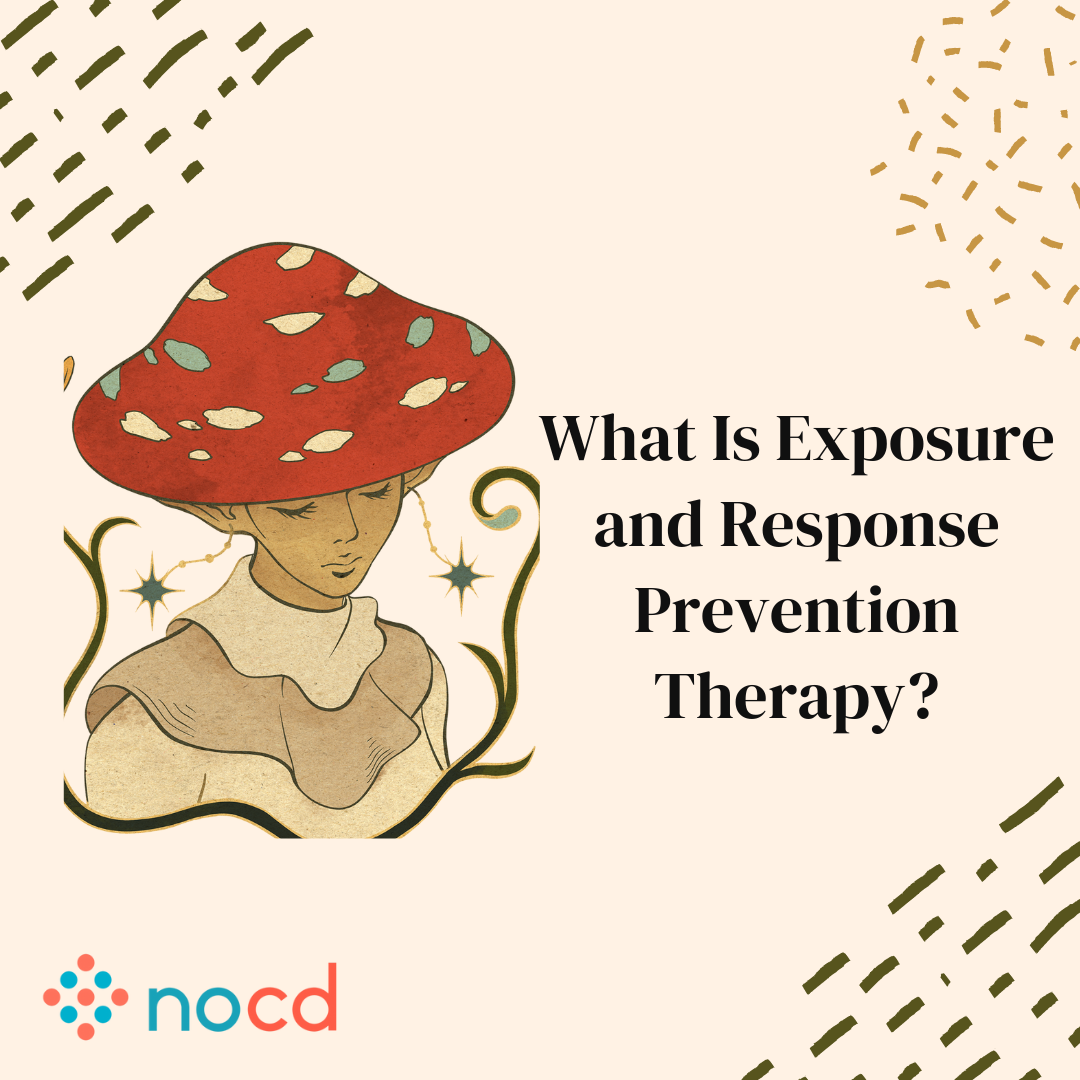
Why is ERP So Expensive? There are hundreds of OCD tests and “OCD quizzes” online. Some aim to help people self-diagnose; others turn obsessive-compulsive disorder into a joke. Either way, a vast majority of these are not helpful and probably create more problems than solutions.